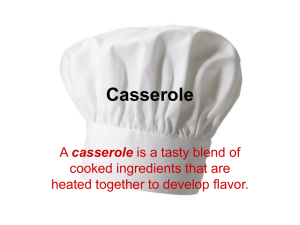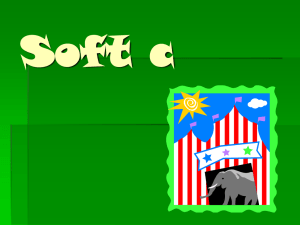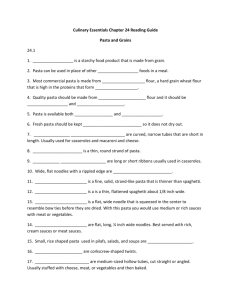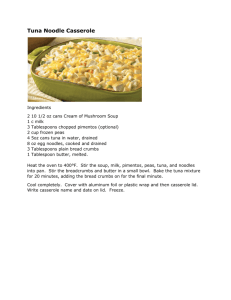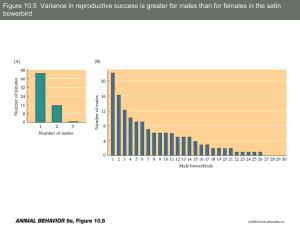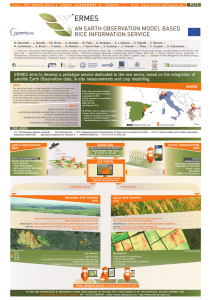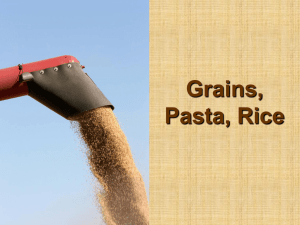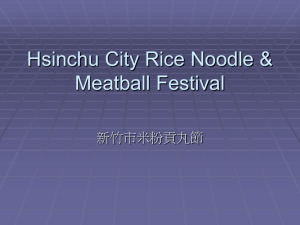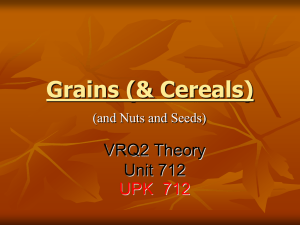base of a casserole provides its
advertisement
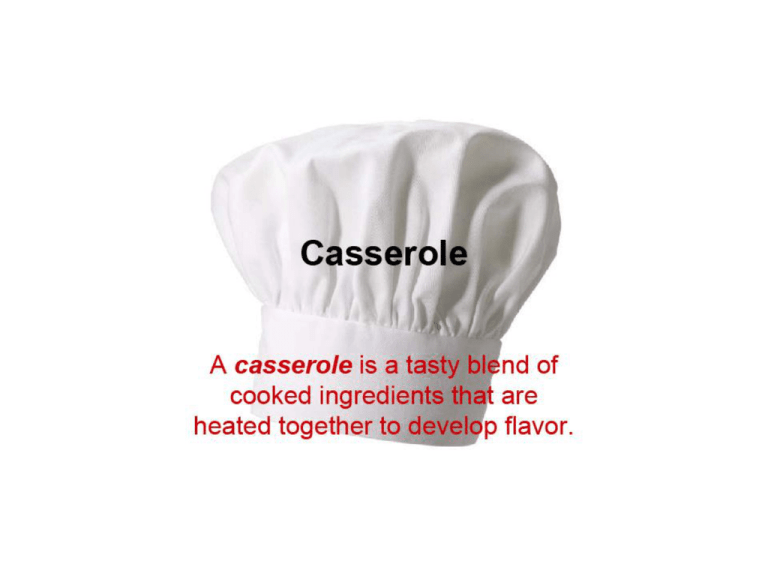
There are three main parts to a casserole: A. The base of a casserole provides its main texture and flavor. • – Cubed, cooked meat, poultry, or fish; browned, drained ground beef or poultry; grated or cubed cheese. Three main parts of a casserole • The extender, a food ingredient that helps thicken a dish. – Dry bread crumbs; cooked, diced potatoes; pasta, rice, grits, or barley; cooked, mashed dry beans. Three main parts of a casserole The binder, a liquid that holds the other ingredients together. – Fat-free milk, broth, fruit juice, soup, eggs, or a thickened sauce Identify the three parts to the following Casserole Recipes • • • • • • • • • • Chicken and Broccoli Casserole 2 pkg. broccoli, cooked and laid in buttered dish. Spread 4 cups cubed chicken on top. Mix together: 2 cans cream of chicken soup 1 cup mayonnaise 1/2 tsp. curry powder Spread over chicken. Sprinkle 1/2 cup sharp shredded cheese. Top with paprika and almonds. Bake at 350° for 40 minutes Identify the 3 main parts • • • • • • • • • • • • • • Hamburger Casserole (Shepherd’s Pie) 1 lb. ground beef, seasoned 1 large onion, chopped fine 1 can undiluted tomato soup 1 can string beans (drained) 2 cups potato flakes or mashed potatoes 1 cup grated cheese Add onion and seasonings to ground beef and brown. Pour off grease. Put in bottom of large casserole and spread soup over meat. Then the beans and mashed potatoes. Cover completely with the cheese. Sprinkle with paprika and cover with foil. Bake at 350° for half hour, then remove foil and bake for 15 minutes more. Five Advantages of Casseroles • Easy • Time saving • A complete meal in a dish • Economical • Large variety can be made ahead and stored in refrigerator/freezer • Require little supervision during baking served in same dish baked in • Leftovers are easy to use Nutrition • • • • • • • • • • • • • Protein - main ingredient - meat, fish, egg, dried beans, cheese • Carbohydrates/starch - add substance/body; used as an extender; add energy through carbohydrates • Undercook rice and pastas so they can continue to cook during the baking process. • Vegetables - add contrast in color, texture and adds nutrition • The binder is the sauce, which holds ingredients together • Casserole toppings are used for color, variety in texture; protects protein ingredients and identify common toppings Parts of the Grain • Bran – B Vitamins, Minerals, Protein, Fiber • Endosperm – Complex Carbohydrates, Protein • Germ – Vitamins B and E, Proteins, Unsaturated Fat, Iron, Zinc • Husk- Outer layer removed ______ • The common name for grain is called cereal Name the seven principle grains • • • • • • • Wheat, Rice, Oats, Barley, Corn, Rye, and Buckwheat Main uses of grains are • Cereals, • Flour, • Pasta The four classes of grains are • • • • Cereal Flour Rice Pasta Wheat has been known throughout history as •Staff of Life Definitions • • • • • • • • • • • • • • Whole grain – most nutritious kind of bread, includes all three parts of the grain. White and brown bread – contains only the endosperm. Brown rice – the whole grain form of rice. Long grain rice – a rice that will stay dry and fluffy. Converted rice – the most nutrient dense. Instant rice – precooked and then dehydrated, cooks quickly and the yield is doubled. Al dente – pasta test for doneness (meaning firm to the tooth) Steps to prepare rice • Wash rice to remove grit and excess starch with a strainer • Use twice the volume of water • In a saucepan bring water to boil then pour in rice and salt • Lower temperature to a simmer and COVER • Let it be for 20minutes or until water has all evaporated Steps to prepare Pasta • • • • • Fill pot ¾ full of water. Boil water until rapidly bubbling Add pasta and salt to flavor NEVER COVER Cook until desired consistency (refer to package) • Drain with a colander Facts • Rice triples in size • Pasta doubles in size Pasta • • • • Long thin: Spaghetti, Angel Hair Flat: Lasagna, Linguini, Fettucini Decorative: Wheels, Shells, Ravioli Hollow: Macaroni/Elbows, Penne, Rigatoni
